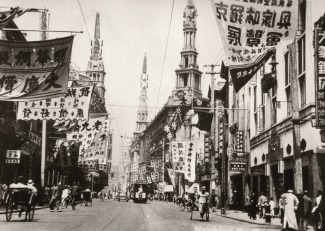Translating interculturality

In a global world such as that in which we live today, where all societies and cities experience cultural influence and confluence in all areas, translation takes on a primary importance, not just as an instrument of linguistic commutation, but also as a means by which it is possible to analyse interculturality. In the field of translation studies it is common to find a distinction between the linguistic code (the text) and the cultural elements that appear in that text. From the changes produced by the appearance of cultural studies in the 1960s these terms, whose meaning goes beyond the terms used in reference to them, attracted a great deal of attention from numerous experts in the field of translation. However, translation studies itself continued to have a linguistic focus.
The problem, then, has basically been to find the most appropriate linguistic form (loanwords, calques, expansions) to transfer these elements, which are assumed to be problematic, so that the reader can understand all dimensions of the text. Consequently, it has been necessary to classify the elements carefully into different categories to ensure a "correct" reproduction. Notwithstanding this, nobody has questioned why this distinction occurs, nor if it is necessary from an academic standpoint, and neither have the consequences that arise from it been investigated. This research is based on the theoretical focus of translation as a starting point, which attempts to go further than the traditionally recognised theories in this field.
The study is centred on the novel Weicheng by Qian Zhongshu, and its translation into Spanish (La fortaleza asediada) and English (Fortress Besieged). The main reason for choosing this novel in particular is its uniqueness and, paradoxically, also the cultural globalism that it embraces. Therefore, of the broad range of resources that Qian Zhongshu uses in his work, one of the most significant is the technique named by the author himself as datong, or the juxtaposition of ideas from different fields of knowledge and literary traditions. It is therefore possible to forward the hypothesis that when a work of modern or contemporary literature is translated, especially from an environment as distant as China compared with Europe, it must be remembered that the cultural references that reflect a specific view not of the European world, but of the Chinese world, and of the Chinese and western cultures that these refer to, are also being translated. The author uses these references for a specific purpose, and he does so using a number of different literary resources. Based on this hypothesis, the objectives of this research are to find out why the author uses these elements, what influenced him and the purpose of the elements as a literary resource, as well as analysing how they are reproduced in English and Spanish and what the confluences and influences between the different translations are. It is also considered necessary to challenge the traditional distinction mentioned above in order to contribute new instruments of analysis to be able to conceive of the translation as a whole.
To achieve these objectives the object of analysis has been limited to a series of elements from the knowledge and literary traditions of the Euro-American cultural environment, which the author introduces systematically into the novel with a specific intention in mind. The clearest example of these elements, referred to as 'intercultural elements' in this study, is the concept that gives the novel its title, weicheng, which appears throughout the text in different forms: a French proverb, an English saying, the reference to the city of Shanghai, the Chinese characters used to translate the proverbs, and the bird radical used alongside the novel every time the main character appears.
The results obtained and the conclusions drawn from the analysis carried out, apart from ratifying the proposed hypotheses, demonstrate the fallacy of the distinction between linguistic and cultural elements. In addition, they allow translation to be conceived of not just as an instrument of linguistic commutation, nor as a simple means of acquiring knowledge about a certain culture, but as a complex and powerful tool of literary globalisation and intercultural communication.
References
"La traducció de la interculturalitat: anàlisi dels elements interculturals de Weicheng i la seva traducció a diferents entorns culturals europeus". PhD thesis defended by Jesus Lara Sayols, October 18, 2010. Director: Sean Golden.


